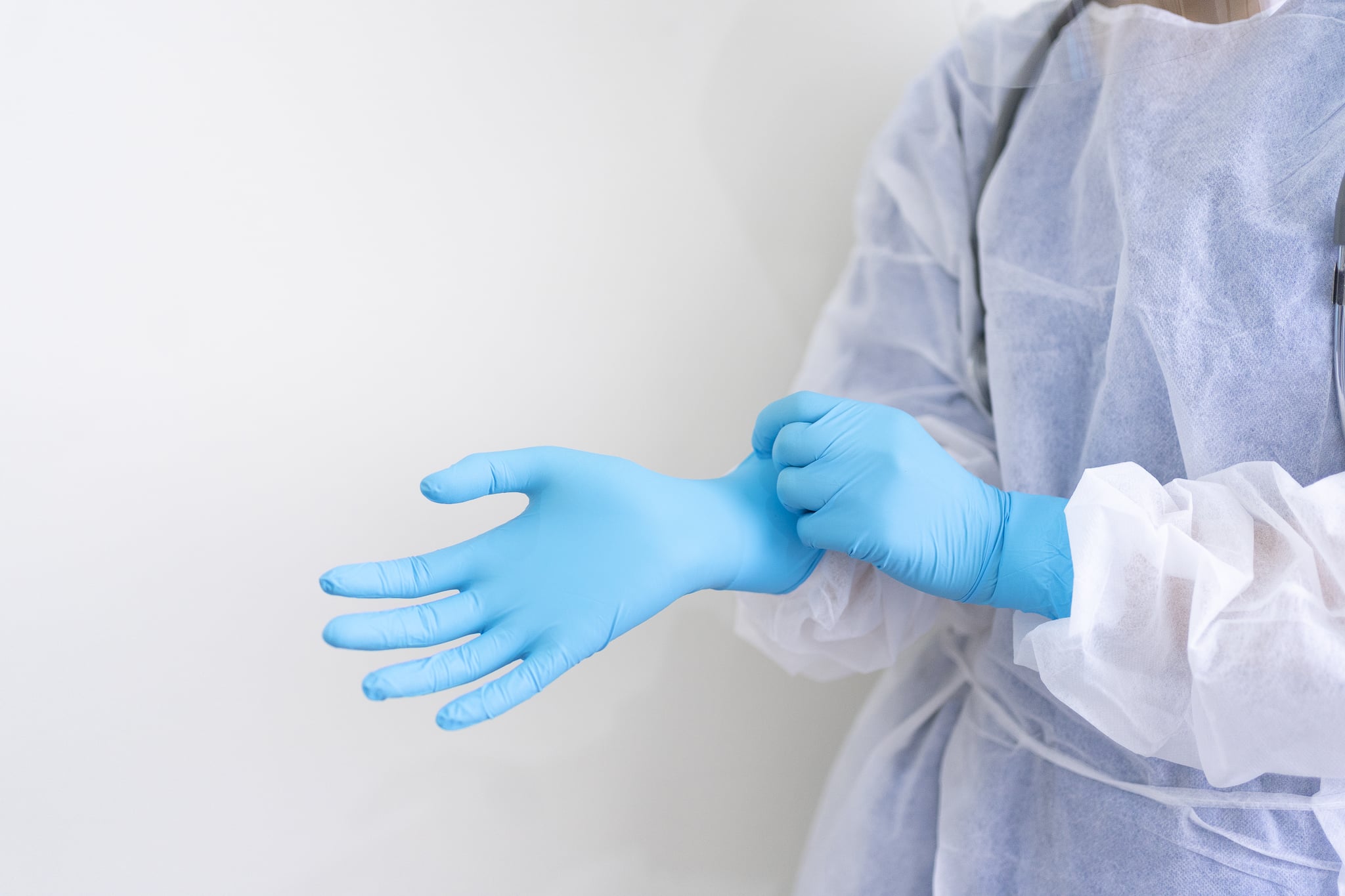

The outbreak of a novel coronavirus shows no signs of slowing anytime soon, leaving many with questions about how to keep themselves and their families safe - and what to expect if the virus hits close to home. Since the infection is viral, treatment is focused more on alleviating the symptoms while the immune system works to fight the virus off (as opposed to bacterial infections, which can be treated with antibiotics). Here's what you need to know.
Is There a Cure For Coronavirus?
According to the Centers For Disease Control, there is technically no "cure" for coronavirus, just like there's no quick fix for the common cold. "There is no specific antiviral treatment recommended for COVID-19. People with COVID-19 should receive supportive care to help relieve symptoms," the agency's website reads. "For severe cases, treatment should include care to support vital organ functions." In other words, coronavirus treatment in non-life-threatening cases is similar to that of other respiratory and flu-like illnesses: keep patients isolated to avoid further spread, treat symptoms like fever and cough, and so on.
The National Center For Complementary and Integrative Health has another warning: beware of "alternative" treatments touted as cures for coronavirus. "Some of these purported remedies include herbal therapies and teas. There is no scientific evidence that any of these alternative remedies can prevent or cure the illness caused by this virus. In fact, some of them may not be safe to consume," the experts warn. "While scientists at NIH and elsewhere are evaluating candidate therapies and vaccines to treat and prevent the novel coronavirus, currently there are no treatments or vaccines for COVID-19 approved by the U.S. Food and Drug Administration." So, a cup of tea to soothe a cough? Perfectly fine. A supposed "miracle" tea that claims to cure coronavirus infections? Not a great idea.
How Do I Prevent Coronavirus?
So, if there's no real cure, what are we supposed to do? The CDC's guidelines are evolving as more knowledge about the virus develops, but right now, the focus is on prevention and keeping the virus from spreading. Since there is currently no vaccine against the virus, avoiding exposure is the best way to avoid infection. The following is a list of recommendations from the CDC to prevent coronavirus - and they're really nothing out of the ordinary:
- Avoid close contact with people who are sick.
- Avoid touching your eyes, nose, and mouth.
- Stay home when you are sick.
- Cover your cough or sneeze with a tissue, then throw the tissue in the trash.
- Clean and disinfect frequently touched objects and surfaces using a regular household cleaning spray or wipe.
- Wash your hands often with soap and water for at least 20 seconds, especially after going to the bathroom; before eating; and after blowing your nose, coughing, or sneezing.
- If soap and water are not readily available, use an alcohol-based hand sanitizer with at least 60 percent alcohol.
What Do I Do If I Get Sick?
If you're already sick, the CDC similarly recommends a set of guidelines to try to prevent the spread of the virus. Among the recommendations: stay home except for visiting the doctor or hospital, call ahead when getting medical care to let your provider know you may have coronavirus so they can prepare accordingly, wear a face mask at the doctor's office and when you're in close proximity to other people (this is only if you're sick), separate yourself as much as possible from other people or pets in your home, keep your hands and other surfaces in your home disinfected, and cover your coughs and sneezes.
The guidelines for treating and preventing coronavirus are shifting as officials and scientists learn more about the virus and its behavior. Be careful not to fall prey to misinformation and false reports. Your best bet is to get your information from reliable news outlets and government agencies like the CDC; you may even check a couple of different sources to make sure you're getting legitimate and updated information to keep yourself and your loved ones safe.



0 comments :
Post a Comment